When Crete Slows Down: The Allure of Hania...
With fewer tourists, sunlit harbors, and...
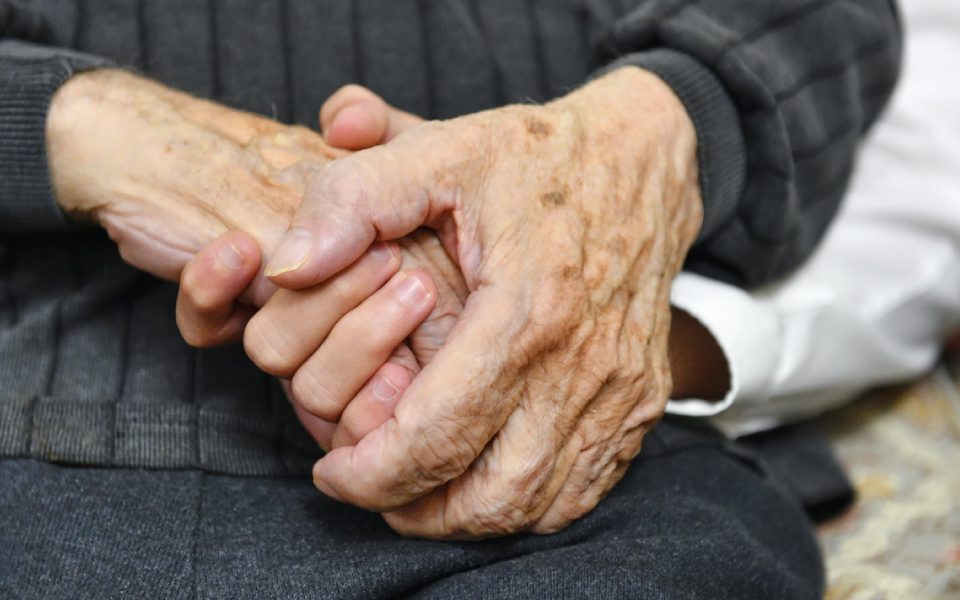
© Miltos Kourmpoglou
“We all wear masks, gloves, disposable scrubs, goggles, and in the kitchen, we even wear disposable overshoes. When the residents see us like that, they laugh. ‘Take off the mask so I can see your cute face,’ or ‘You look like you’re dressed for carnival,’ they tell me.”
Dimitra Perivolari is a 31-year-old nurse at the Nea Thalpi Long-Term Care & Rehabilitation Unit in the northern Athenian suburb of Agios Stefanos, where approximately 100 people reside, aged 75 to 100 years old. Some are completely healthy and others suffer from illnesses such as dementia, Parkinson’s, and heart disease.
Like all nursing homes, Nea Thalpi must protect its residents, both ensuring they do not get infected by the coronavirus and helping them deal with their fears. “Those who are able to understand the situation are scared. The shortages of hand disinfectant, rubbing alcohol and masks that they hear about on television worry them. They keep asking us if we are well supplied. For some, this brings back memories of the occupation, and the war. Now that their relatives are in confinement, they relive past experiences from when they were young,” says Dimitra.
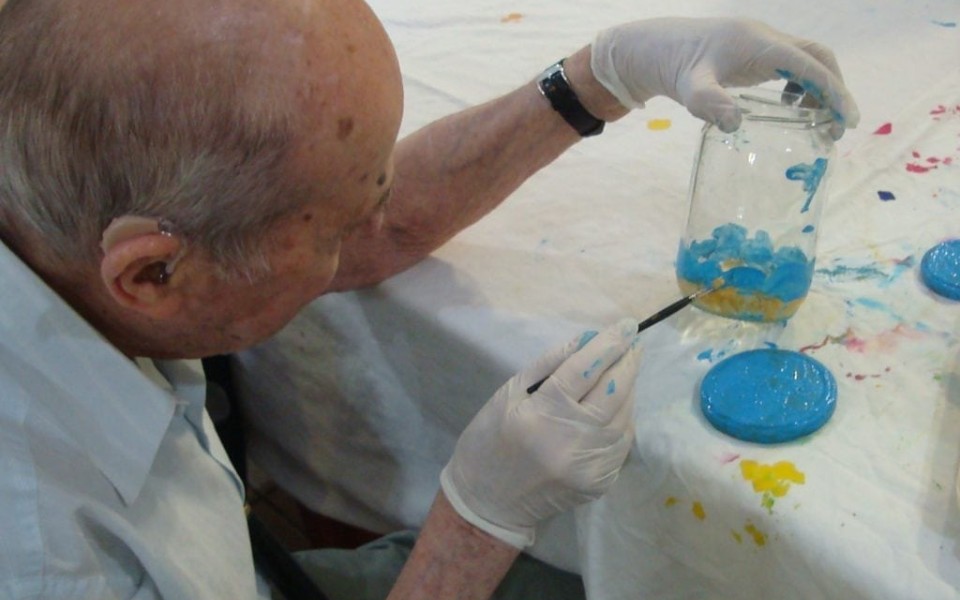
© Nea Thalpi archive
Working as a nurse in the facility is, in itself, a very demanding job, but under these circumstances it becomes infinitely more difficult. Workers feel a great sense of personal responsibility to be sure not to infect the elderly with the virus.
Ioanna Antonatou, another 31-year-old nurse at the facility, says, “Wearing gloves, masks, and disinfecting our hands definitely helps in the prevention of infections and diseases. We did the same thing during the flu season to some extent, and it proved effective. We take our temperatures every day before starting our shifts.” She does not fear for herself but rather for the elderly residing at Nea Thalpi. “They are more fragile. If I get infected, my body will fight back somehow. For older people, it’s more complicated, and the death rate is higher. I’m 10% afraid for myself and 90% afraid for them! I feel uncertain, because I could be a carrier of the virus and not realize it. I travel by public transport and, even though I take all the necessary precautions, I still worry about it.”
The fear that Dimitra, Ioanna, and the rest of the younger people working at the nursing home feel for the elderly is reciprocated: the elderly also fear for the lives of younger people. Argyris, 98 years old and a retired teacher, worries about his children, “mainly for their health, but also their jobs.” Maria, who is 93 and was a domestic worker, worries about her daughter, her son-in-law and her grandchildren: “I hear so many things on television. I hear about what’s going on abroad and I pray that everything will go well for everyone.”
Like all residents at Nea Thalpi, Maria cannot receive any visitors: they have been forbidden in all nursing homes for safety reasons. So she stays in touch with her daughter in a somewhat unorthodox manner – through the glass that separates the living room from the veranda: “I am inside, and she is outside.”
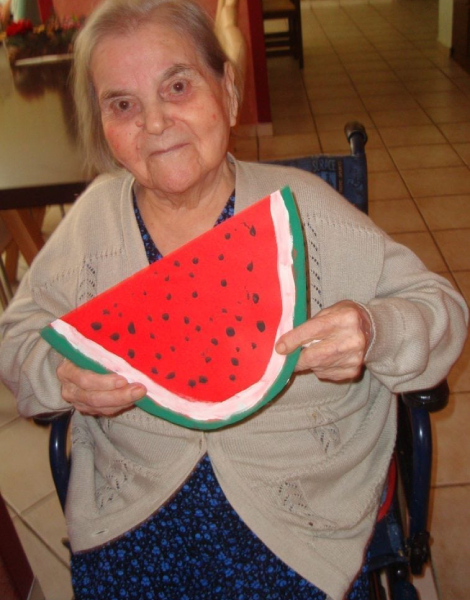
© Nea Thalpi archive
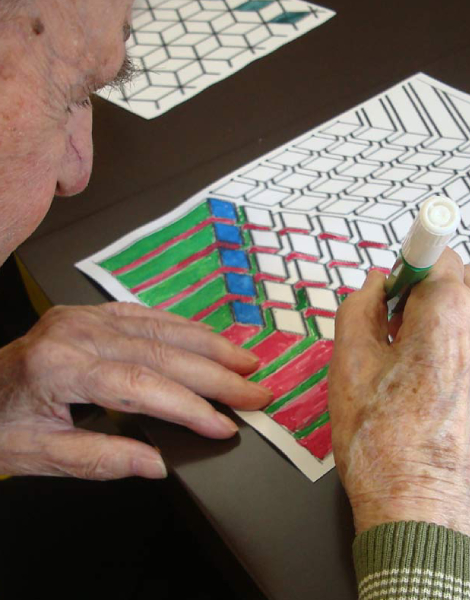
© Nea Thalpi archive
Nursing assistant Dimitra Skoura provides a clearer picture of the situation: “The living rooms, where our residents gather, are located on the ground floor, overlooking a garden and a veranda. Some relatives take advantage of this to come and see them from the veranda. The residents are on one side of the glass and the relatives are on the other. It’s sweet to watch them exchanging kisses, touching the glass with their hands – gloved, for the relatives – as if they were trying to stroke one another.”
Additionally, Nea Thalpi residents stay connected with their relatives with the help of modern technology: Viber, Whatsapp and Skype allow communication in ways that weren’t imaginable to these people in earlier times of hardship, when they could only keep in touch with loved ones through letters or rare, brief phone calls.
“My granddaughters and my daughter can’t come see me, but I don’t miss them because we speak on the phone every day and I can see them through the phone camera at any time,” Argyris says. In the same way, another resident named Maria, this one an 88-year-old who once taught at a vocational training institute, speaks to her sister Ilia every day on the phone. “I even see her on my mobile. It’s a great invention. Calls have a different feel when you’re able to see the person you’re talking to.”
What’s impressive is that, despite the world being turned upside-down by the pandemic, life at Nea Thalpi still runs its normal course: the program still includes activities, games and discussions. “We’ve all got good friends here, and we talk,” says 93-year-old Maria, explaining how she fills her time.
We ask our three elderly interviewees to share with us a piece of advice they would give to younger people who are in their first forced long-term confinement at home and who, at the same time, fear the impact that the coronavirus will have on the economy. Argyris recommends patience, and standing tall.
“From every challenge that arises comes something new: we learn a new lesson, or we discover new strengths that we might not have known we had. At least that’s what I’ve understood from my own life. Of course, now we’re dealing with a global invisible threat that we can’t control, and this lack of control brings anxiety, but we need to be optimistic and stay calm.”
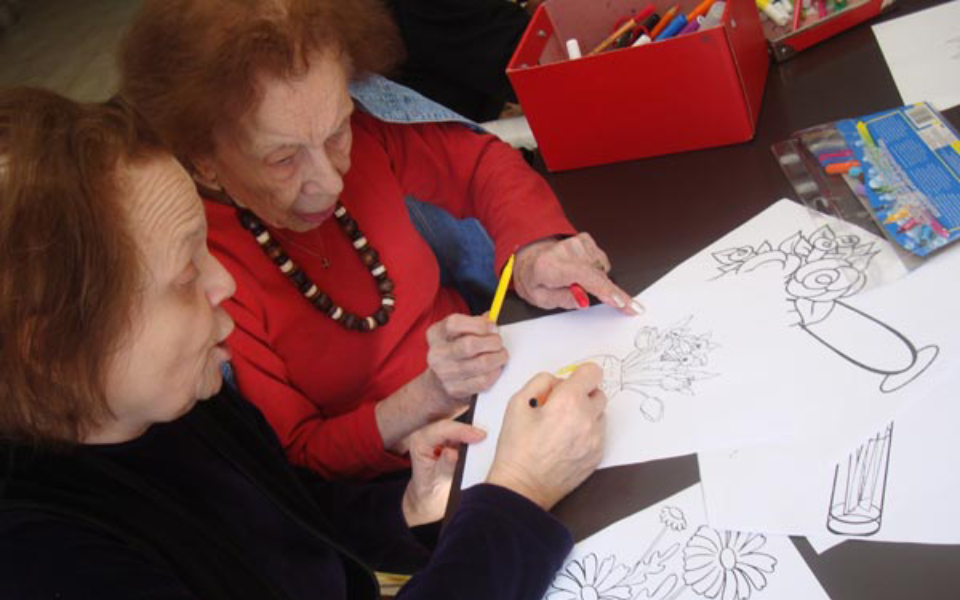
© Nea Thalpi archive
The older of the two Marias prescribes self-confidence and awareness. “Young people must stay patient and believe in themselves, but they also shouldn’t act on impulse. Everything will be alright in the end. There are many bright minds around the world. A solution will be found, eventually.”
Her 88-year-old namesake turns to the wisdom of a great Greek poet: “Nikos Kazantzakis once said ‘Stone, iron and steel will not endure – man, however, will.’ I want to tell young people the same thing. Humans have been through a lot. We will come out of this crisis stronger, more united, and perhaps wiser. Our generation has suffered through things like war, hunger and occupation, and it learned to cope with them. Evidently, this is different. The enemy doesn’t have a face, we don’t know where it’s coming from. But we must not despair or give in to the fear. We must show endurance and adaptability.”
These three considered answers should help us realize something simple: young, productive people may be able to care for the elderly on a physical level, providing them with shelter, food and health care, but the elderly can care for younger people in equal measure, on an emotional and moral level. People with great life experience are precious. Their insight, often underrated, is of extraordinary social value.
This article was originally published on kathimerini.gr
With fewer tourists, sunlit harbors, and...
As its historic estates fade and...
A challenging summer ride across the...
Six Athenians tell us about their...